Farmers losing S$15,000 to S$300,000 as mass fish deaths look set to continue
SINGAPORE — Fish farmers yesterday continued to add up their losses as the mass fish deaths resulting from the low levels of dissolved oxygen in the water showed no sign of abating, while National Development Minister Khaw Boon Wan pledged that the Government would “do its utmost” to help farmers.
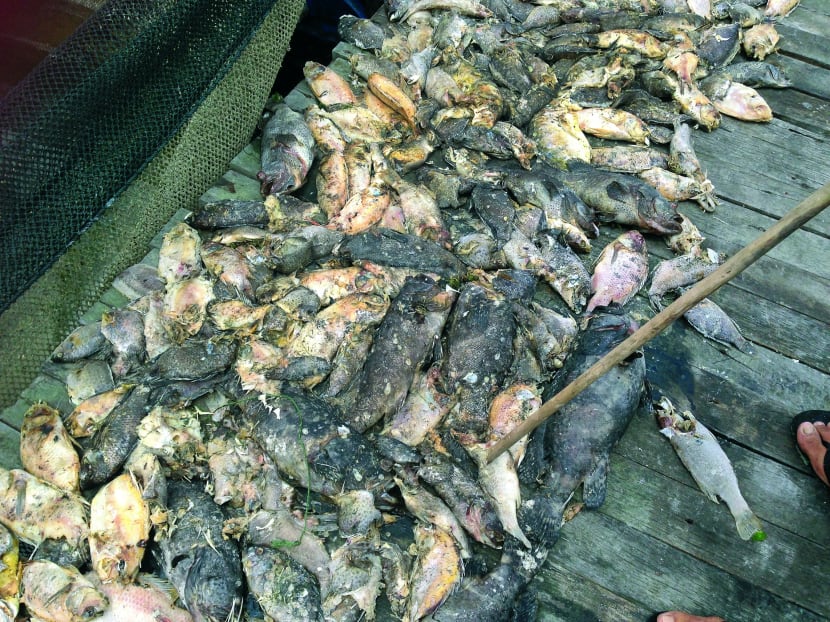
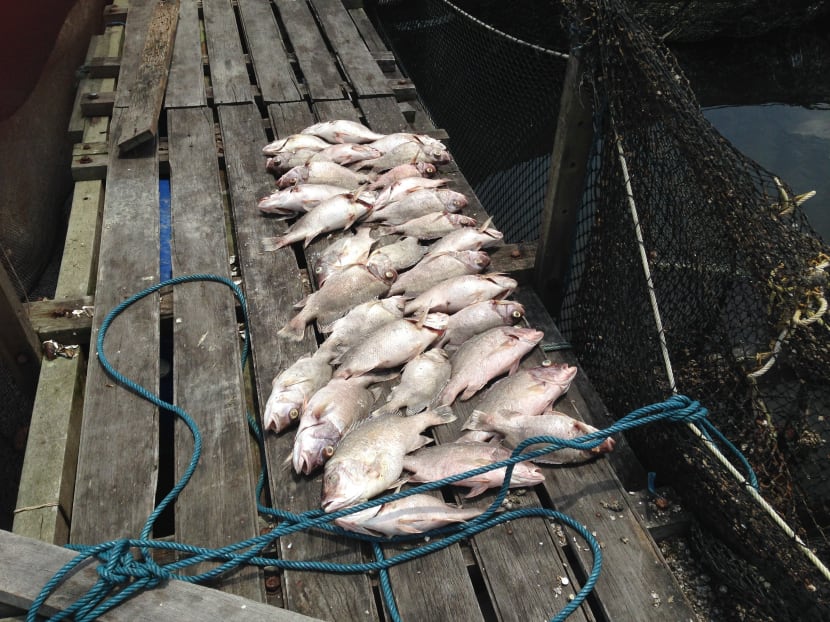
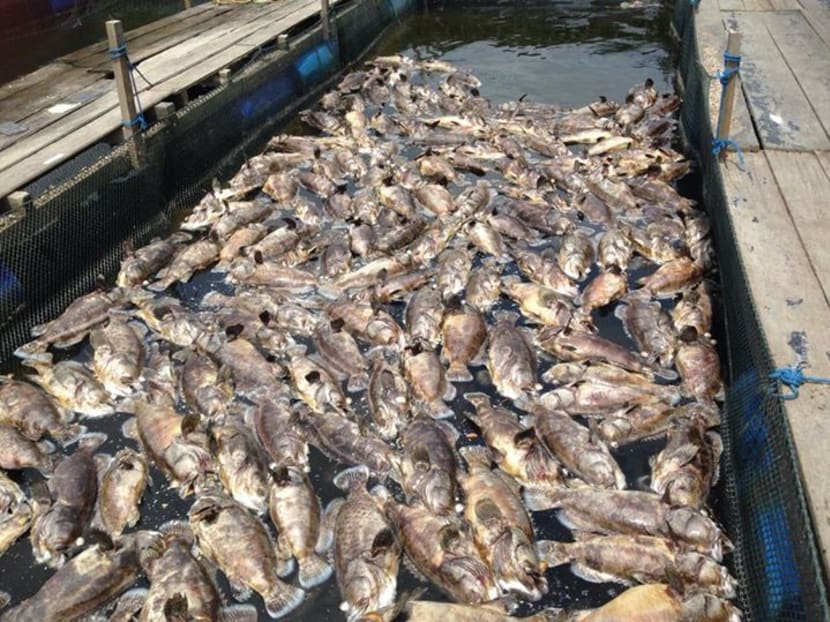
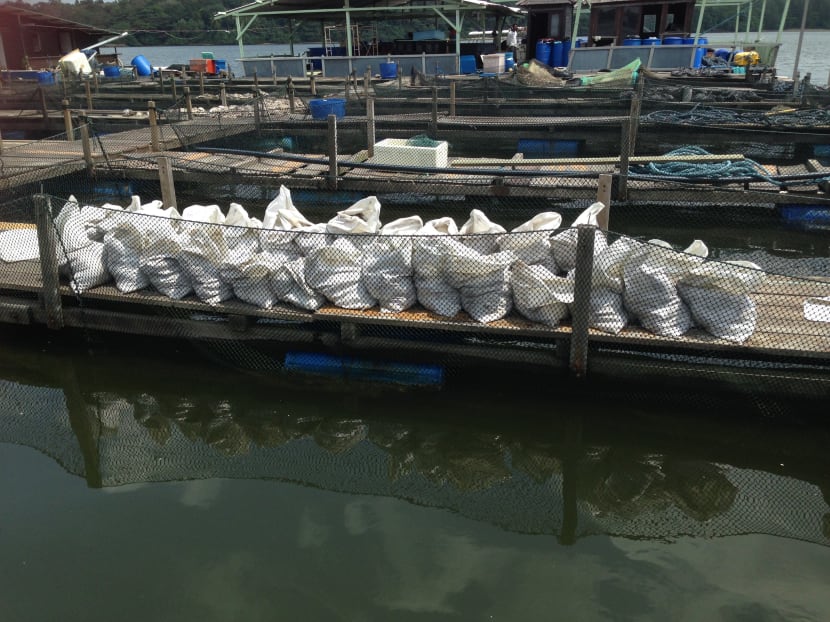
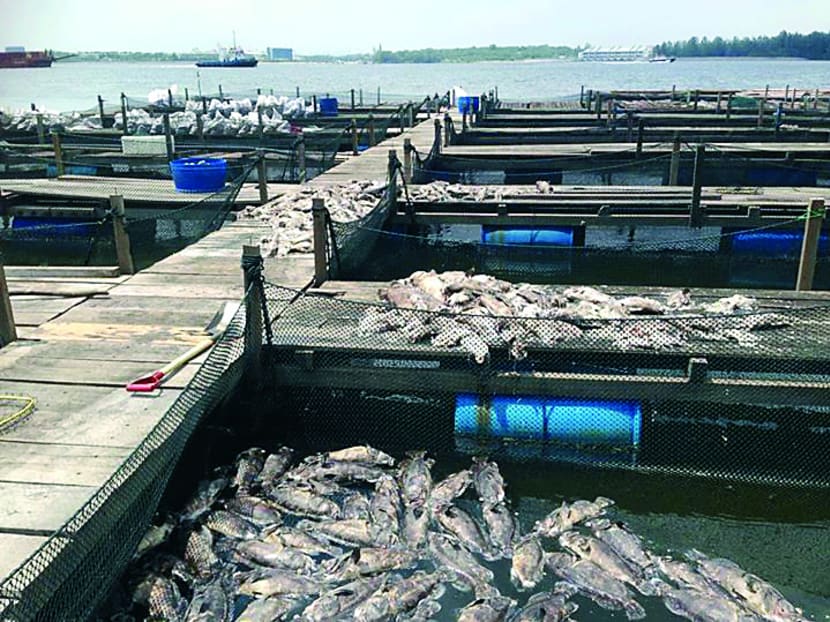
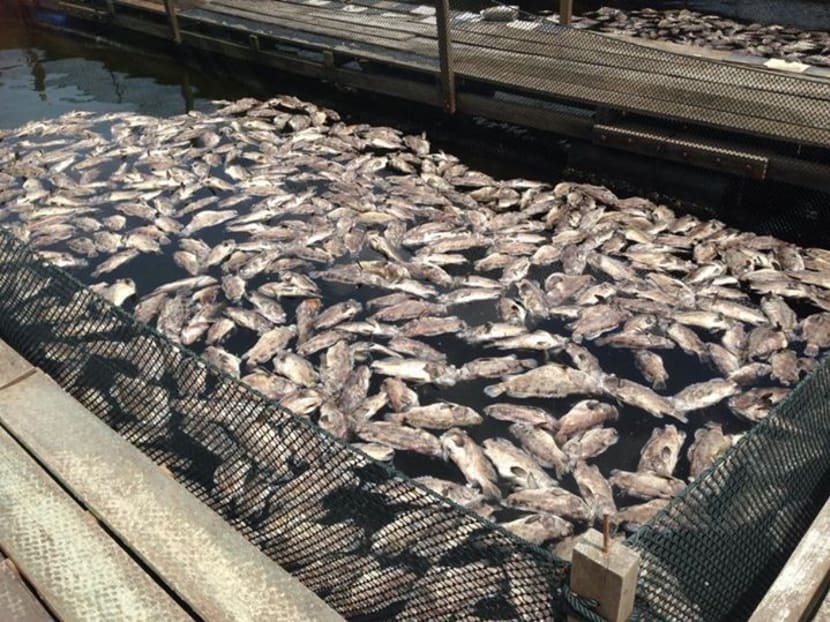
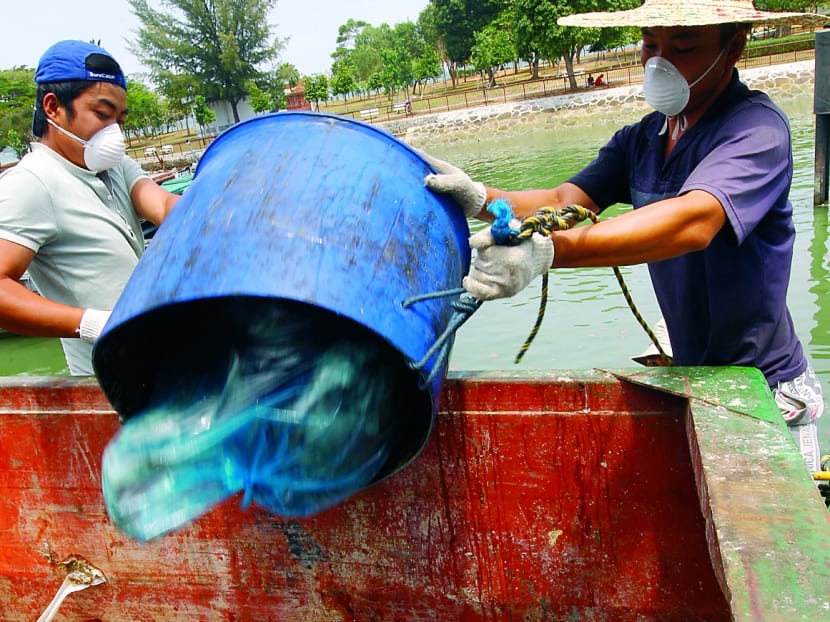
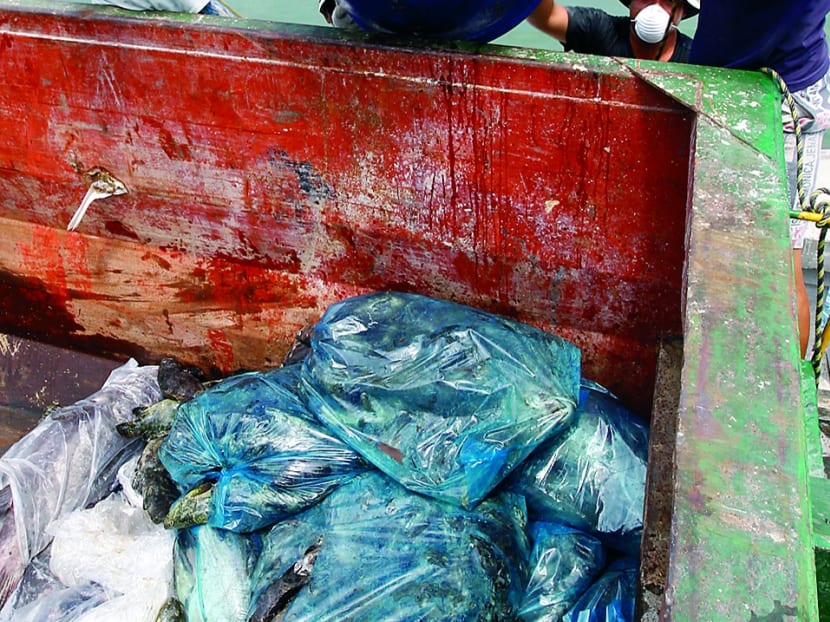
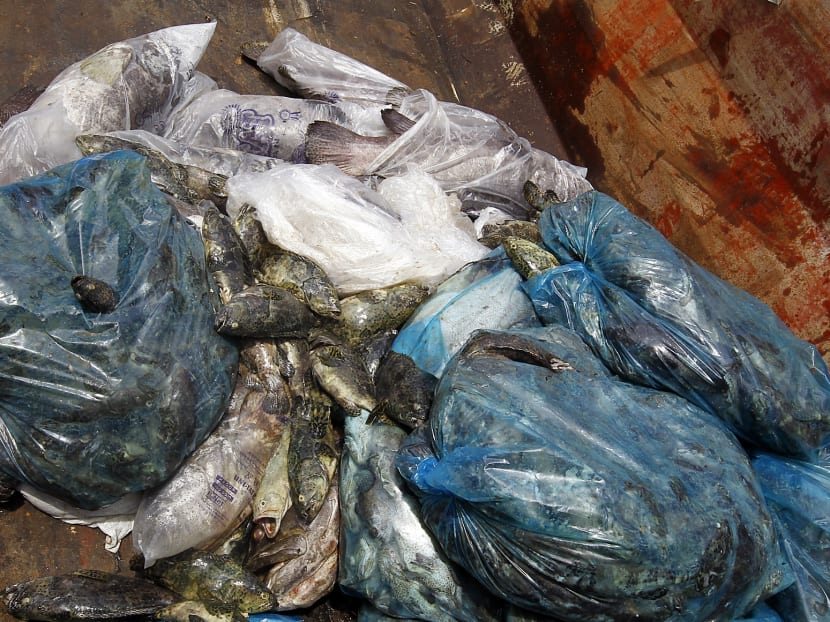
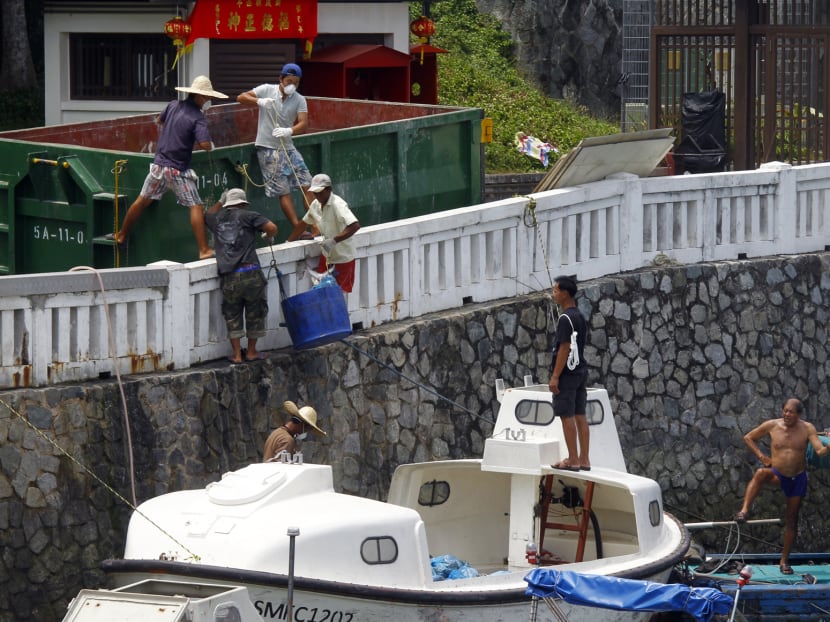
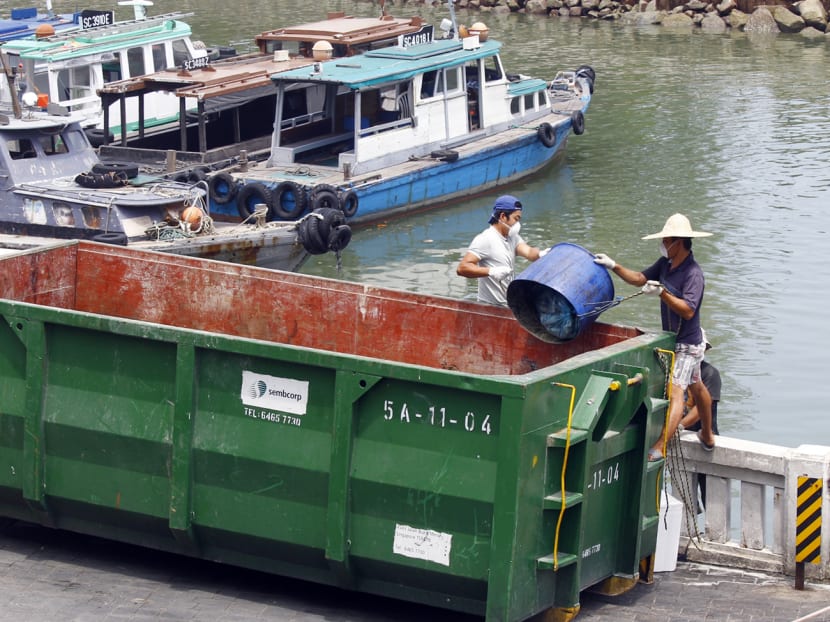
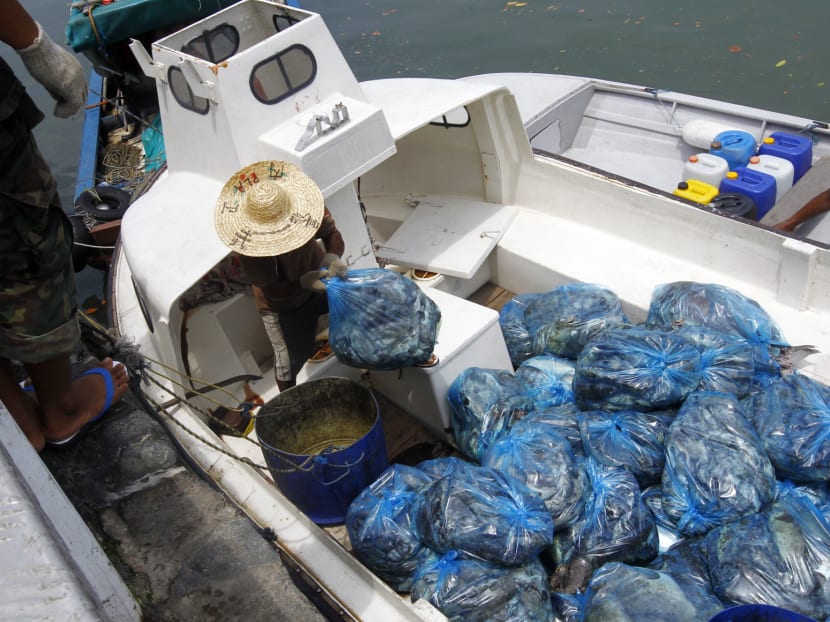
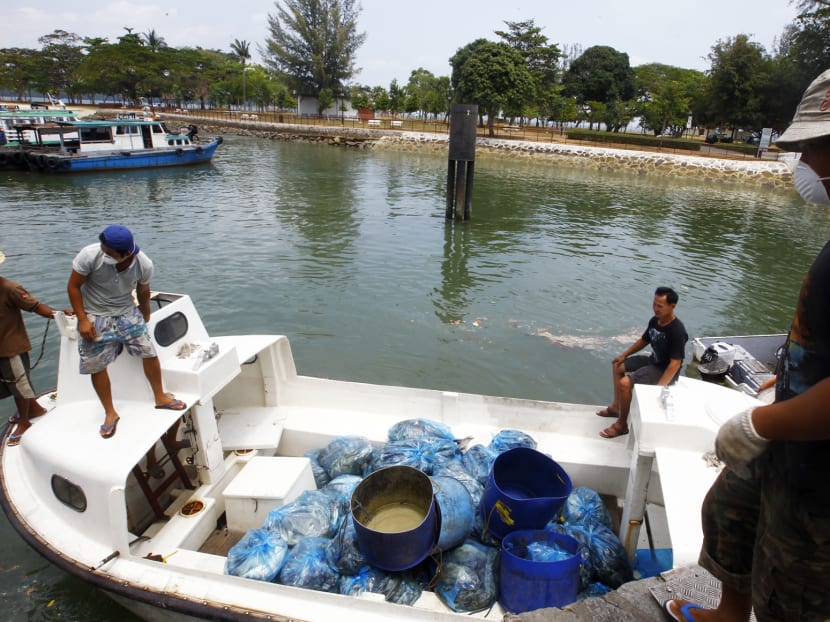
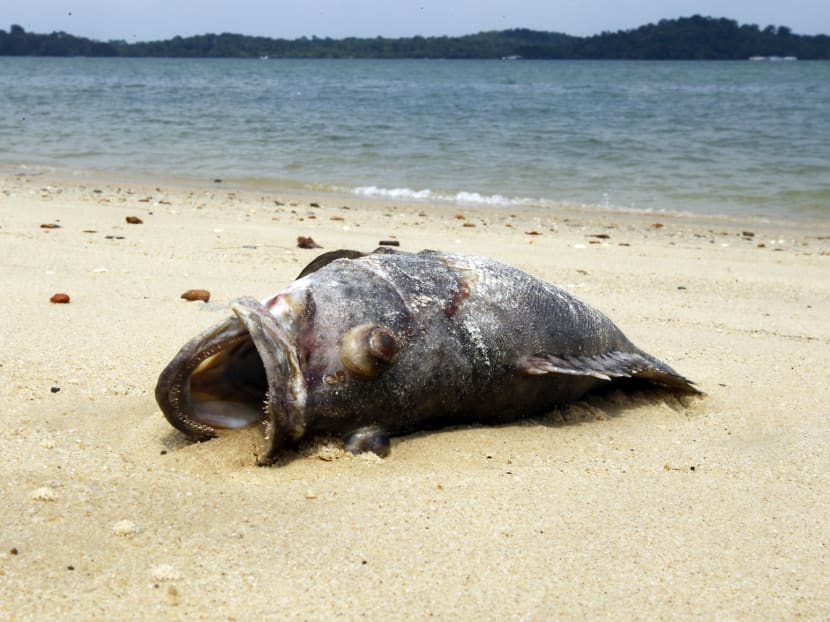
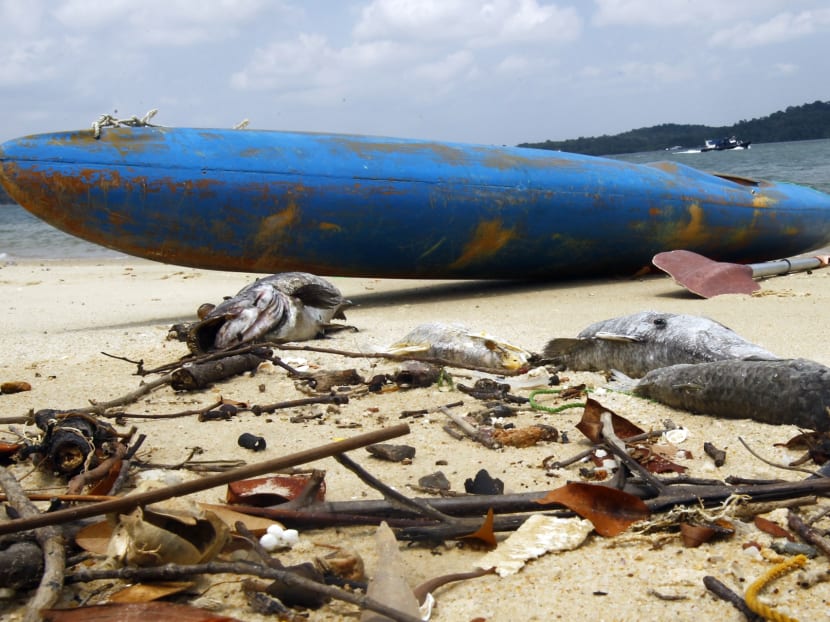
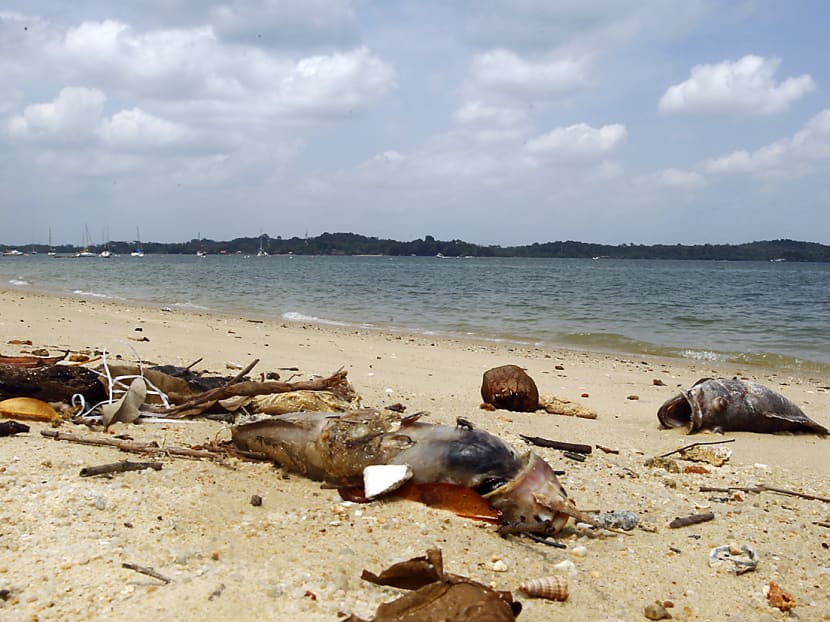
SINGAPORE — Fish farmers yesterday continued to add up their losses as the mass fish deaths resulting from the low levels of dissolved oxygen in the water showed no sign of abating, while National Development Minister Khaw Boon Wan pledged that the Government would “do its utmost” to help farmers.
Farmers TODAY spoke to said they have each incurred losses ranging from S$15,000 to S$300,000 and, with uncertainty over how long the situation will last, they hope the authorities can help in the interim, as well as provide long-term support such as better monitoring of algae and plankton levels in the water.
Others are doing their best to mitigate losses by selling the remainder of their living fish as quickly as possible or moving them to less affected waters.
In a blog post yesterday, Mr Khaw said he had been told by Agri-Food and Veterinary Authority (AVA) Chief Executive Officer Tan Poh Hong that the situation was serious, with those rearing more susceptible species such as grouper, threadfin and golden trevally more badly affected, while some farms had lost their entire stock.
“We had immediately sent in more workers to deploy aeration systems to help normalise the water conditions and also to assist in the disposal of dead fish,” he said. “I have asked MND and AVA to continue to help our farmers and look into their requests to see how best we can help them in the current situation.”
On Tuesday, the AVA said about 160 tonnes of dead fish had been found in farms on both the East and West Johor Straits. This could have been caused by a plankton bloom — brought on by hot weather or the neap tide — which can drain seawater of oxygen.
A similar incident occurred in 2009, where more than 200,000 dead fish washed up along Pasir Ris beach, but Mr Gary Zhang, who has been a farmer for more than 33 years, said this year’s spell is the worst he has seen.
He said an algae bloom, which could also be triggered by the lack of rain, could be another factor behind the deaths. When algae die, the decay process deprives water of oxygen. He has moved the rest of his livestock to safer waters in Malaysia for the time being.
The AVA has been collecting fish carcasses from affected fish farms and has placed a skid tank at Changi Point Ferry Terminal, where farmers can dispose of dead fish.
Mr Joseph Wee, who owns Blue Marine Fish Farm, said he had also dried some of his dead fish to feed other marine livestock. About seven tonnes of his fish have died, costing him about S$300,000.
Mr Timothy Ng, President of Fish Farmers Association of Singapore, which has about 40 members, said the association hopes to have a dialogue with the authorities, adding that it did not have the resources to help farmers much.
The Government could help by designating new sites to set up fish farms, such as north of Pulau Tekong or in waters with less algae count, which can be used to house stock in the event of a crisis of this nature, Mr Zhang suggested. A team could also monitor the algae or plankton levels in the waters weekly and alert farmers when levels become critical so precautionary measures can be taken.
“If you are prepared, you can place your fish in a canvas bag, put a net underneath while filtering the algae from the water. You can move the fish to a safer place then,” Mr Zhang said. “In 2009, we were not so well prepared. This time, the moment our fish started dying on Saturday, we moved the rest of them by Sunday.”
ADDITIONAL REPORTING BY AMANDA LEE






